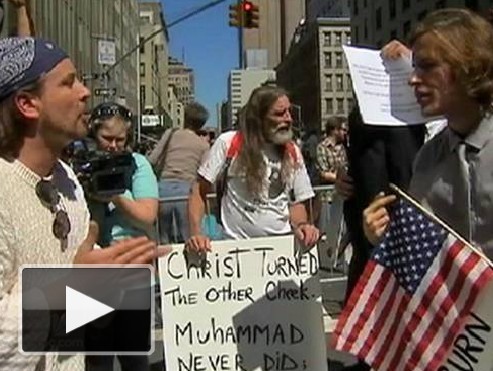
NEW YORK — Nine years of denouncing(谴责) terrorism, of praying side-by-side with Jews and Christians, of insisting "I'm American, too." None of it could stop a season of hate against Muslims that made for an especially fraught(充满着不愉快的事情的) Sept. 11. Now, Muslims are asking why their efforts to be accepted in the United States have been so easily thwarted(阻挠).
"We have nothing to apologize for, we have nothing to fear, we have nothing to be ashamed of, we have nothing that we're guilty of — but we need to be out there and we need to express this," said Imam Mohammed Ibn Faqih in a sermon(布道) at the Islamic(伊斯兰教的) Institute of Orange County in Anaheim, Calif., the day before the 9/11 anniversary.
There is no simple way for American Muslims to move forward.
Images of violence overseas in the name of(以……的名义) Islam have come to define the faith for many non-Muslims at home. The U.S. remains at war in Afghanistan, and although America has formally declared an end to its combat operations in Iraq, U.S. troops there continue to fight alongside Iraqi forces.
Within the U.S., domestic terror has become a greater threat, while ignorance about what Islam teaches is widespread. More than half of respondents in a recent poll(民意调查) by the Pew Forum for Religion & Public Life said they knew little or nothing about the Muslim faith.
Some U.S. Muslims say their national organizations share the blame, for answering intricate(错综复杂的) questions about Islam with platitudes(陈词滥调), and failing to fully examine the potential for extremism(极端主义) within their communities. Muslim leaders often respond when terrorists strike by saying Islam is a "religion of peace" that has no role in the violence instead of confronting the legitimate(合情理的,合法的) concerns of other Americans, these Muslim critics say.

